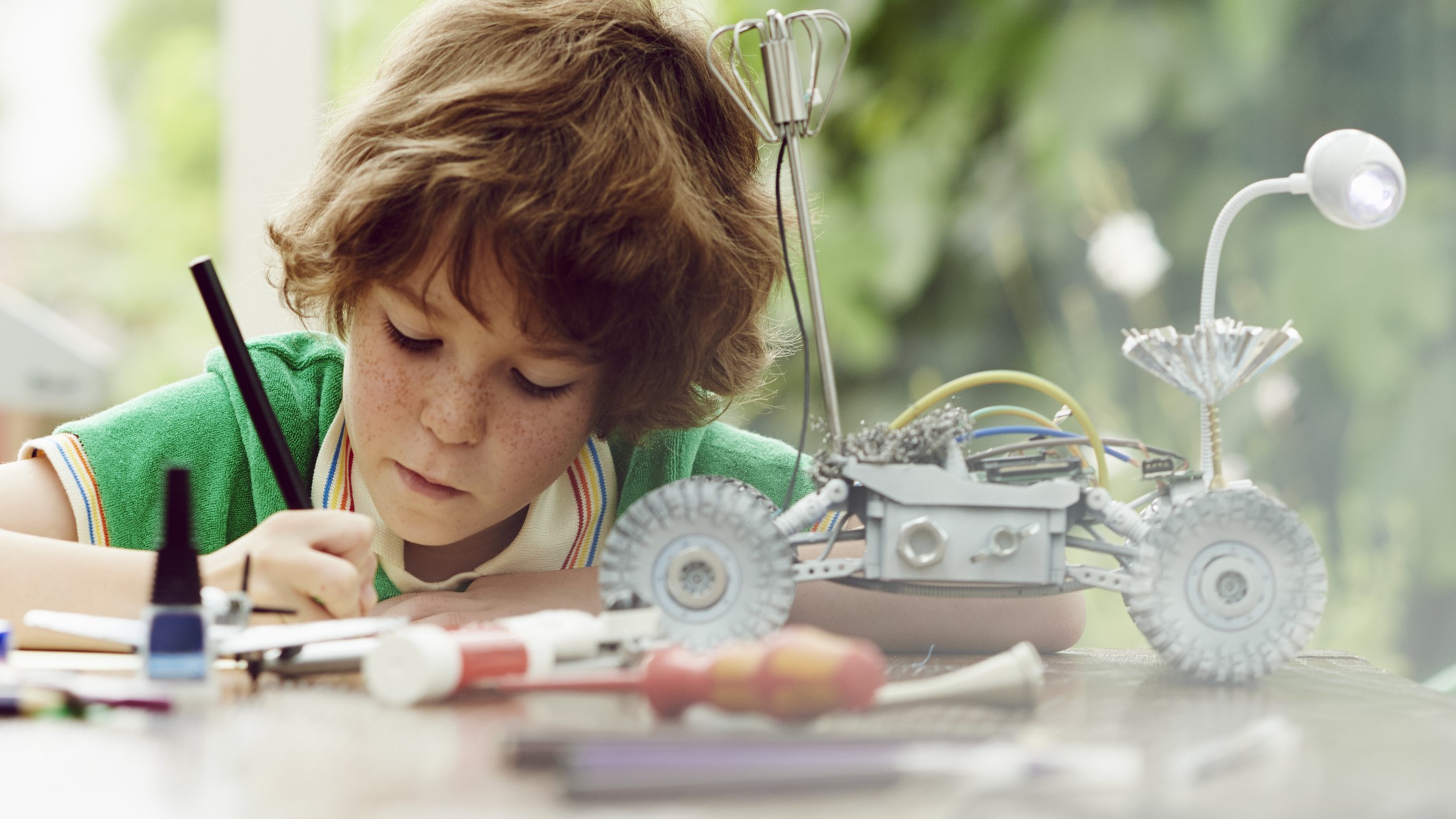6 upsides to ADHD seen in kids who are 'accepted' - educational psychologist needs parents to know
Empowering kids with ADHD is a game changer read on to find out why


Parenting a child who thinks or acts differently can sometimes feel overwhelming, but you're not alone. Many parents are discovering that conditions like ADHD aren't just about challenges - they come with amazing strengths too.
Have you noticed your child has a unique way of seeing the world? Those differences might actually be superpowers waiting to be discovered. Instead of only trying to "fix" behaviours, what if we focused on helping our kids use their special traits in positive ways?
Kids with ADHD often have incredible creativity, energy, and problem-solving skills. These abilities can be huge assets at school, at home, and with friends. The key is creating an environment where your child feels accepted and encouraged to be themselves. We've got tips and advice on how to do it.
What are the 6 upsides to ADHD?
The unique traits of ADHD can be mistaken for symptoms when they are in fact strengths, such as hyperfocus, high energy levels, creativity, and spontaneous, they are open and honest and have a great 'gut instinct'. I go into them in a bit more detail below with the following strengths existing for some children and young people with ADHD, no matter the environment they are in, as long as they receive support and acceptance from others:
1. High energy levels
This is the one upside probably most associated with ADHD, 'hyperactive kids'. When channelled in the right way this is a great trait to have. Imagine having higher energy levels than people who do not have ADHD and how that may benefit children with the ability to remain energised while engaging in physical activities.
2. High self-concept and risk tolerance
Children and young people with ADHD can sometimes be tolerant of taking risks and have a high sense of concept in some situations; this can be beneficial. For example, a child with ADHD may be more confident about trying to engage in an unfamiliar task in comparison to their neurotypical peers.
For example, children and young people with ADHD may be keener to impulsively engage in behaviour that may have beneficial outcomes and then reflect on it later, whereas neurotypicals may prefer to take calculated risks.
GoodtoKnow Newsletter
Parenting advice, hot topics, best buys and family finance tips delivered straight to your inbox.
Hai and Climie (2021) completed a study with 64 children with ADHD aged 8-12 years. The children were asked to complete questionnaires about their social skills and strength-based factors such as optimism, resilience, self-concept and coping skills. The findings indicated that children with ADHD have higher levels of resiliency and self-concept, believe in their own competence and have more significant prosocial attitudes than those without the diagnosis.
3. Open and honest
Some children and young people with ADHD that I have worked with tend to be open, direct, and honest, which can be beneficial for forming friendships as individuals around them can have open conversations. Also, the common saying 'what you see is what you get' tends to ring true for some individuals with ADHD as they can often be honest, and relations will always know where they stand with them.
4. Increased competence
It may take some trial and error, but when children and young people are supported (e.g., the use of a visual checklist), they can be hyper focused on being super organised, which has benefits for meeting deadlines.
5. Creativity
Some children and young people with ADHD tend to be creative and have exceptional problem-solving skills, particularly if they have received guidance to develop such skills. This can be beneficial when engaged in family time, thinking outside the box during group tasks at school and being innovative.
6. Hyperfocus
In my experience, when children and young people are encouraged to work on activities that are linked to their interests, their level of focus increases, and they can be hyperfocused, which has positive outcomes such as passionately sustaining attention to tasks. Being hyperfocused can help with following passions related to schoolwork and non-learning-related activities (e.g., hobbies such as swimming).
How can parents help children with ADHD thrive?
Hai and Climie (2021) results highlight the importance of empowering children with ADHD to develop strong social skills and to perceive themselves as resilient, competent and capable of engaging in social and learning situations. It also highlights the importance of fostering a growth mindset rather than a fixed mindset when supporting children and young people with ADHD. Which means, that they belive that their abilities can grow and be developed and improved over time, while those with a fixed mindset believe that their abilities are innate and cannot be changed.

A growth mindset is a concept that highlights the room for progress to be made over time, and it is in contrast with a fixed mindset that promotes having limiting beliefs about one's capacity. To continue to boost the strength of children and young people with ADHD, parents should do the following four strategies:
A consistent routine
Establishing a consistent, non-negotiable routine is vital as it helps individuals with ADHD regulate the brain's circadian rhythm, positively ripple effect on their sleep patterns and promote overall well-being. Having a routine also enhances time management skills, as it provides predictability when engaging in a sequence of activities, such as getting dressed in the morning and being on time.
Checklists of tasks
In all my years as a qualified Educational Psychologist, I have learned that a visual or a written checklist of tasks to achieve expected outcomes is highly critical. It is essential to tick off the visual or checklist as one progresses through a routine.
Find out what motivates them
Children and young people with ADHD should identify what motivates them to follow a routine. For example, some may find listening to music helpful in sticking to a task, while others may find it distracting. Finding internal motivation, such as reaching a personal goal or feeling accomplished, is vital. There is no right or wrong answer; however, searching for the most effective is critical, and the likelihood of following a routine successfully will increase.
Using an alarm or timer
Children and young people with ADHD should use a timer or alarm to help them monitor their ability to stick to a plan and a routine. At the end of each day, parents can support their children in reflecting and evaluating how well they are sticking to a routine and doing more of what works. Parents can help children get to know themselves and stick to what works. Equally, individuals with ADHD should identify one aspect of their routine that does not work and focus on changing that area.
More support and resources on ADHD
- Parenting a Child with ADHD: How to Prepare Your Child for School Life, Integrate Executive Functioning Skills, and Foster Successful Friendships, by Rose Lyons
- Living with Attention deficit hyperactivity disorder (ADHD) l NHS
- ADHD Support For Your Child I Parents Advice Guide I Young Minds
Dr Patricia Britto is part of our expert panel, take a look at her author page. Dr Britto's most recent 7 ways to make sure your child is school ready, is so helpful on what's really important for your little ones to know about and her article on body autonomy - the 5 things kids never have to do is so insightful - with useful tips.

Dr Britto's qualifications include a Doctorate in Professional Educational, Child and Adolescent Psychology, an MSc in Mental Health in Learning Disabilities and a BSc in Psychology.